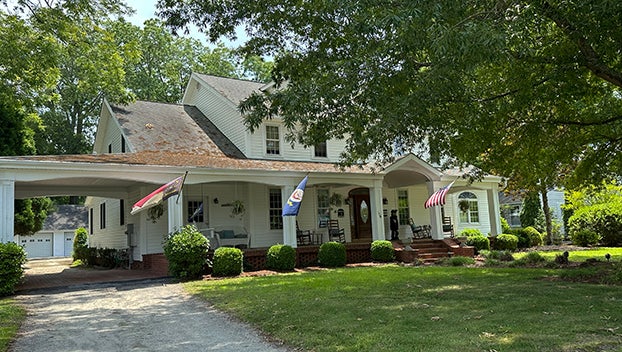What am I spraying?
Published 4:23 pm Thursday, July 8, 2021
|
Getting your Trinity Audio player ready...
|
This year has been a funny one so far. We’ve had lots of rain and then no rain and then lots of rain again as we endured our first tropical storm of the season. This has made our pre-emergent (PRE) applications to turf not last so long. I have fielded multiple calls this year, stretching back to early spring, asking about turf weeds, especially why crabgrass has been so prolific this year.
There are a couple of things to keep in mind here. An abundance of rain causes our PRE application to lose efficacy very quickly after application. This means that the normal 3-6 months of control we expect may only last 1 to 3 months. It is common practice not to spray warm season turf during green-up (between February and mid-May) because the grasses are particularly vulnerable to damage during this time period. So, if your turf was sprayed with a PRE application in early February and you had two months of efficacy due to the high amounts of rainfall we experienced, then you had an abundance of crabgrass and other weeds and had a good start in April and May. Keep in mind also that many professional applicators do not like to spray in the heat of summer either because grasses can be very sensitive to selective herbicide applications when temperatures exceed 85°-90° Fahrenheit. This puts us in a bit of a corner with our weed control efforts.
Some homeowners have taken things into their own hands this season. Folks, it is so important to read the label of a product before you purchase and apply it to your lawn. That is to say every time you purchase the product. Companies will keep the brand and colors the same in products because consumers identify with it, but change the active ingredients. There are herbicides out there that will kill your entire lawn if not applied correctly.
One such product is called Total Vegetation control. The first indicator should be that the package comes in a one gallon jug that is entirely red in color. In nearly every other discipline, red means danger. This product contains the active ingredient imazapyr, a chemical that offers residual control for nearly 12 months. Sounds great for cracks in concrete or maybe even a fence row that you are trying to keep clean on a ranch. However, this product is lethal to nearly every hardwood tree in your home landscape.
I had a call a few years ago from a resident that had lost nearly every tree in her landscape from Bradford pears (on the NC invasive species list by the way) to maples to pecan trees. Investigating the problem I knew it had to be a chemical application, but what would cause so much damage to these large mature trees? As it turns out, her son had purchased a herbicide from a yard sale thinking it was something else. It turned out to be a chopper which contains the active ingredient imazapyr. For about $5.00, they lost every hardwood tree that was sprayed with the product.
I had another case this week in which a homeowner was dealing with a section of his yard that was not growing. I visited the property and found that it resembled herbicide damage but how did it happen. We looked at everything that was sprayed and as it turns out, the homeowner mistakenly applied glyphosate, the active ingredient in Round-up and many other products, thinking it was safe for his grass.
Yet another case in the past week, a client called having had damage to nearly every hardwood tree in their yard. The trees were exhibiting signs of imazapyr damage once again. However, the client only sprayed Round-up near the trees. Did you know that there is now a Round-up product that not only has glyphosate but also has imazapyr in it? It is marketed under Round-up Extended Control. This is a great combination if you know what you are using it for but If you think this is just Round-up and apply it as such, you’re going to be in some trouble.
The moral of the story here is to make certain you know what you are applying. If you don’t take the time to read the label you will not know and if you don’t know then you just don’t know.
If you are having an issue in your home garden or landscape, send your questions to Gene Fox, Consumer Horticulture Agent with the North Carolina Cooperative Extension Service, please email Gene at gene_fox@ncsu.edu or call at (252)946-0111. Learn more on Facebook at the Blacklands Area Horticulture page or visit the Extension Office located at 155 Airport Road in Washington.





